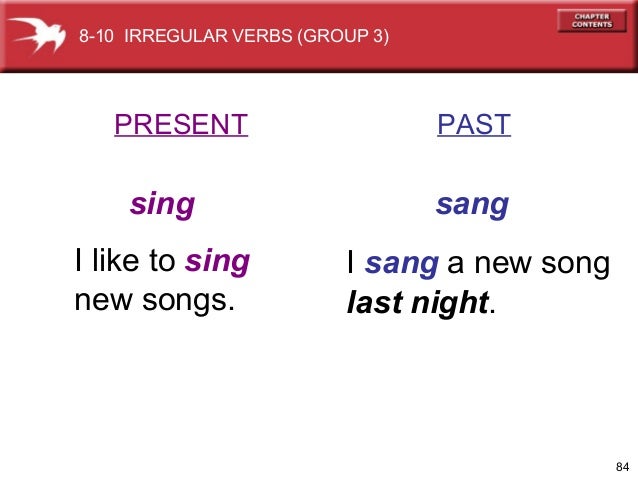

With practice, it will become a matter of habit.

Another might say that they, too, have swum in it. Swum is used after have, as in 'I have swum in that pool before.' Passing by a scenic lake on a road trip, a friend might point out that they have swam in its crystal-blue water. There is no way to tell what form an irregular verb is going to take in a changed tense the only option for an English speaker is to commit the changes to memory. Here’s how it looks when you conjugate it: Present tense I/you dive She/he dives We/They dive Past tense I/you dove or dived She/he dove or dived We/they dove or dived As you can see, dove and dived are both accepted as past-tense conjugations of the verb. Answer (1 of 10): Dear Anonymous, Dictionaries (online or book form) probably could give you a more complete answer on this irregular verb, but here are the two verb forms you requested: Sang is the past tense of to sing (e.g. What to Know Swim is an irregular verb swam is the past tense of swim, while swum is the past participle. sing Past Simple: sang Past Partciple: sung Present Partciple: singing. The changed forms of these verbs are often unrecognizably different from the originals. The past simple and the past participle of sing Base Form/Infinitive without to. Unlike regular verbs, these verbs that undergo substantial changes when changing forms between tenses are irregular verbs.


 0 kommentar(er)
0 kommentar(er)
